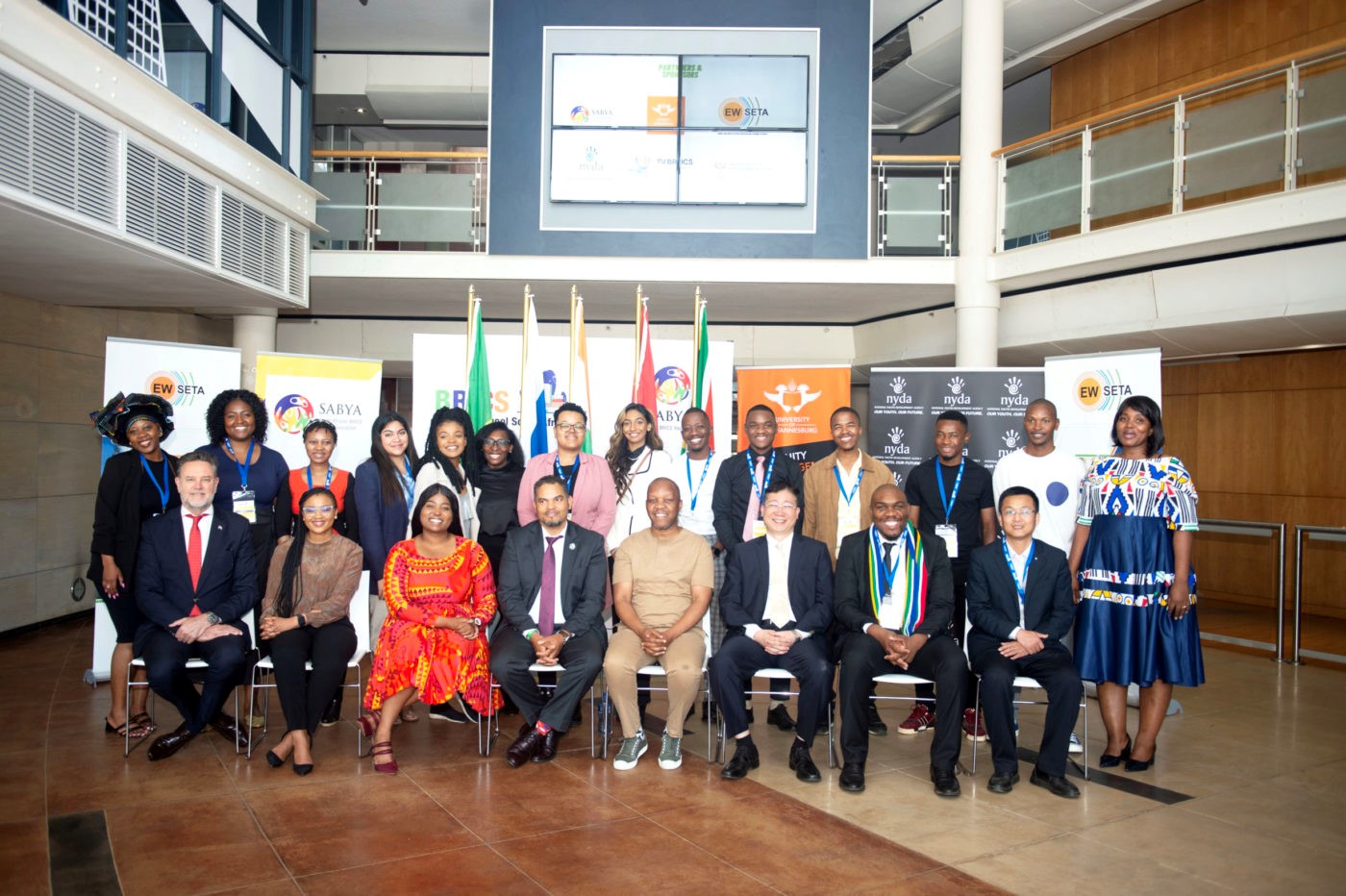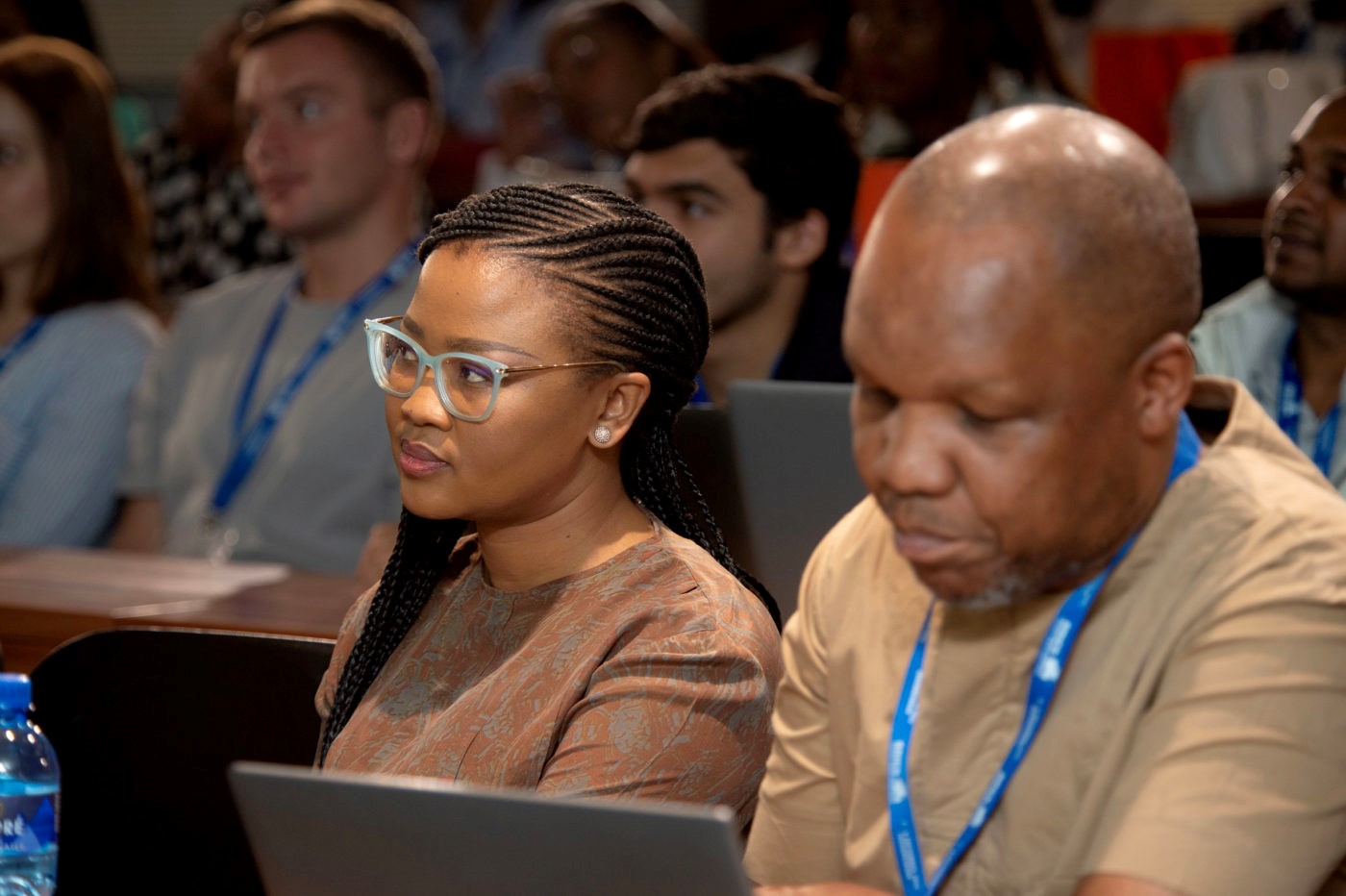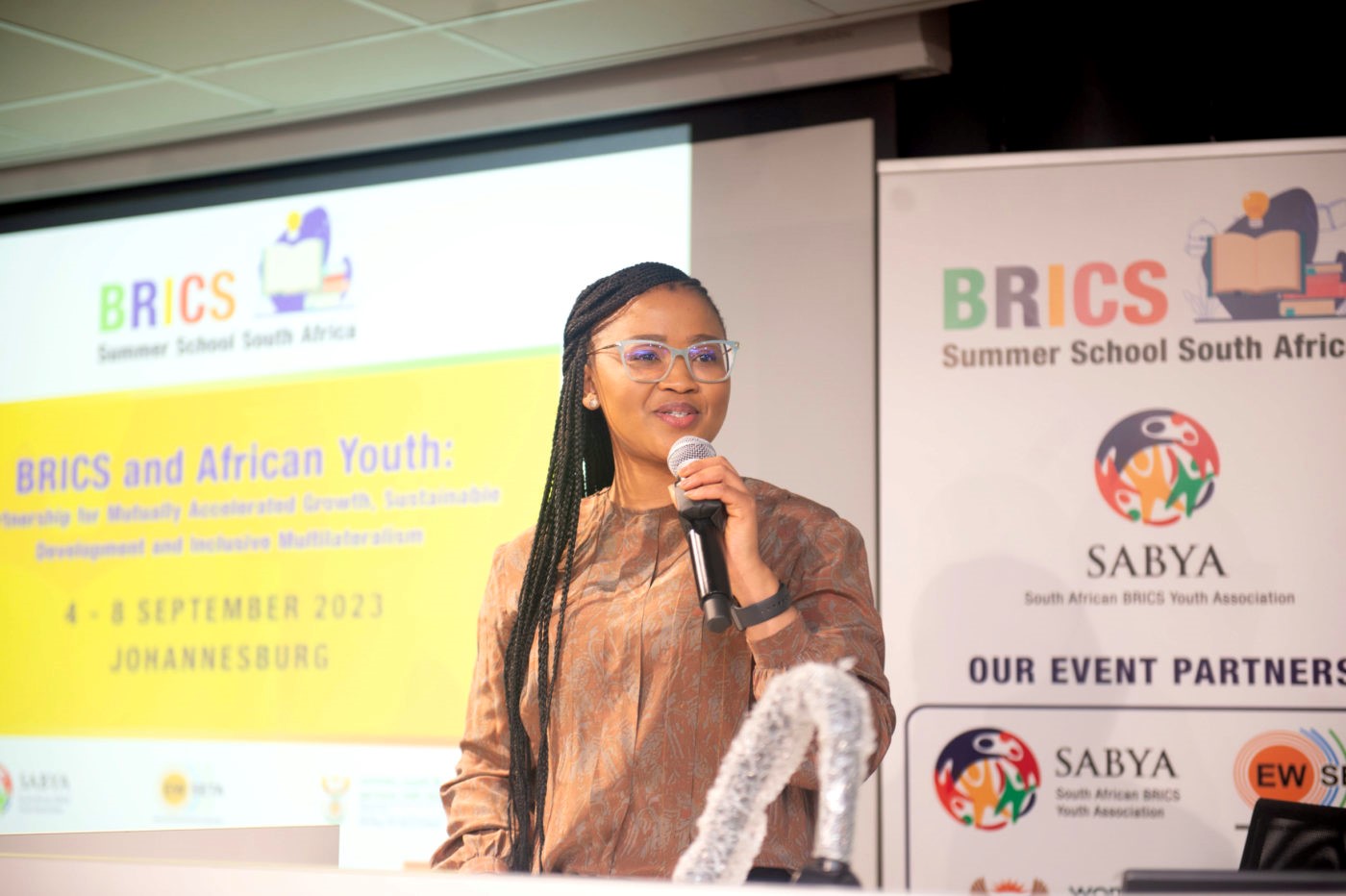University of Johannesburg (UJ) Hosts the BRICS Summer School, Fostering International Collaboration and Learning
The University of Johannesburg (UJ) hosted the BRICS Summer School from 4 – 6 September 2023. The event was organised by the Institute of Pan-African Thought and Conversation (IPATC) in collaboration with the South African BRICS Youth Association (SABYA). The BRICS Summer School seeks to develop a cohort of young BRICS policymakers and influencers whose role is to actively contribute to shaping the development agenda of BRICS countries in the new era. This forum offers the youth an opportunity to gain a deeper understanding of the BRICS grouping and its impact on the global economy.

The key objectives of the BRICS Summer School are to foster collaboration between participants from different countries and backgrounds, promote knowledge sharing and exchanging ideas on a range of topics related to the BRICS countries, including economics, politics, culture, and society. Other objectives are to promote cultural exchange, fostering mutual respect and common understanding as well as strengthening youth cooperation on various issues affecting youth and identify common interests between BRICS Youth.
In his opening speech, Professor Siphamandla Zondi, Director of the Institute for Pan-African Thought & Conversation (IPATC) and co-director of the Institute for Global African Affairs, expressed his appreciation for the initiative. He characterised it as a programme designed to enable the youth in all BRICS countries to co-imagine the trajectory of BRICS, understand the present circumstances within BRICS, and identify pertinent issues, questions, and topics that the youth believe should be prioritised on the BRICS agenda.

Prof Zondi stated that the BRICS grouping is actively advocating for inclusivity in all areas.
He also emphasised the significance of the BRICS Youth Summit as a forum for young people to discuss and exchange ideas on various topics including entrepreneurship, innovation, sustainable development, and culture.
Mr Raymond Matlala, the chairman of the South Africa BRICS Youth Association, provided some background on how the BRICS Summer School was established. He stated that the genesis of the concept was prompted by the limited understanding and awareness of BRICS among young people. Mr Matlala highlighted the various initiatives that his organisation is planning to implement in order to empower young people with knowledge about BRICS. One such initiative is BRICS Thursdays, which seeks to involve experts from diverse sectors in providing youth with training on various subjects related to BRICS.

IPATC, which seeks to position UJ as the leading research institution on BRICS studies, expressed its dedication to formalising this commitment by signing a Memorandum of Agreement (MOA) with SABYA for the following collaborative activities:
- Establish a UJ BRICS Youth Chapter
- Establish a BRICS academic simulation model that allows students to assume the roles of delegates and engage in resolving real international issues by adopting the policies and perspectives of their assigned country.
- Support the attendees in publishing opinion pieces, policy briefs and journal articles based on their experience at the 2023 BRICS Summer School
The three-day event was also attended by Ms Mpho Mookapele, CEO of Energy and Water SETA, Ms Karabo Mohale, Executive Deputy Chair of the National Youth Development Agency (NYDA), Mr Liu Kaiyang, Minister Councillor representing the Chinese embassy in South Africa, Mr. Ben Joubert, South Africa’s BRICS Sous-Sherpa and Mr. Alvin Botes, the Deputy Minister in the Department of International Relations and Cooperation (DIRCO) of South Africa.

